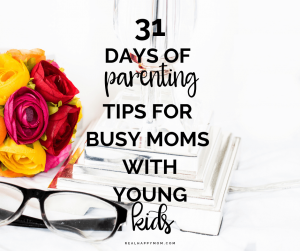I am sure you have probably wished that you could be understood better by those around you. Your toddlers feel the same way!
The big difference is they have much more limited communication skills than you.
Because of the limited communication, toddlers can get so frustrated that they throw a temper tantrum.
Learning how to communicate with your toddler can go a long way toward enhancing your relationship and helping your toddler feel loved and understood.
But how can you communicate with your toddler?
Most toddlers (children under the age of three) have a pretty limited vocabulary. Learning to understand what your toddler is trying to say is only have of the battle.
You also need to learn how to help your toddler understand you. Here are some tips for helping make this happen.

Pay attention
Everyone has unique ways of communicating. One key part of developing relationships is learning another’s language.
For instance, certain phrases that your best friend uses lets you know when she is really serious about something.
Body language
The same is true for your toddler. Watch your toddler’s gestures and body language.
Try to see if he is pointing to or reaching for something. I guarantee you he is trying to show you something if you really focus and pay attention to what he is saying.
My son had a hard time saying words when he was a toddler, but he loved to eat sweets. I had introduced him to chocolate and he loved it!
One day he kept going to the pantry saying this particular word over and over. I couldn’t understand what he was saying and I wasn’t really paying him attention at the time. I close the pantry and he threw the biggest tantrum ever!
Later he got my husband to go to the pantry and he kept pointing and saying the word I heard earlier. My husband saw what he was pointing at and gave him a piece of chocolate.
And he was the happiest kid on the block! If I had paid attention I would have realized that he was trying to say chocolate! Mom guilt really kicked in that day.

Certain sounds
Next time, try listening to your little one’s sounds. Do they have inflections that sound like a question?
Maybe it sounds more like a frustrated yell or angry sound.
Is it close to mealtime? Maybe a snack might help stave off a meltdown.
Use your observational powers to learn what your toddler’s needs are so that you can meet those needs before frustration sets in … for both of you.
Crying is a form of communicating
Many people view crying as “bad,” and some even believe it’s punishable.
But for toddlers with few words at their disposal, crying is a form of communication just as it is for small babies. Babies cry to let you know they are hungry, have a wet diaper or they are getting tired.
The same is true for a toddler. Your crying toddler is trying to tell you something.
This is why many experts recommend finding the source of the problem and addressing it. Whether it’s hunger, tiredness, a need for a hug, or something else.
Find the source of the problem and address it instead of refusing to respond to the crying because it’s “bad” behavior.

Talk anyway
Many child development experts agree that you should speak to your toddler in a normal voice rather than “baby talk.”
Of course, toddlers tend to enjoy cheerful, energetic and upbeat tones; but it’s a good idea to apply those tones to normal words and speech. This models how speech is supposed to be.
There are even studies that show that speaking in a longer sentence with correct grammar actually helps draw connections between words and various concepts.
Narrate your day
Go ahead and verbalize things during the day with your toddler.
She will hear you describe what you’re doing, using lots of interesting words and engaging her in the day’s activities.
In the grocery store, talk about colors and flavors and where food comes from.
At home, talk about the chores you’re doing, like laundry or dishes, and let her help when it’s appropriate.
This helps combine hands-on experience with words.

I hope that these tips will help you better communicate with your toddler.
I know that it can be challenging. But if you pay attention and speak to your toddler often, you will find that communication will be much better.
Let me know in the comments if there is something that you do to help with communication with your toddler.

This post is a part of the series 31 Days of Parenting Tips for Busy Moms With Young Kids. Each day throughout the series I am discussing a different topic regarding parenting young kids. I’d love for you to follow along and share this series with moms who may need some support or just to hear that they aren’t alone in their journey of raising young kids.
Find all of the posts in one place on the series homepage: 31 Days of Parenting Tips for Busy Moms With Young Kids
